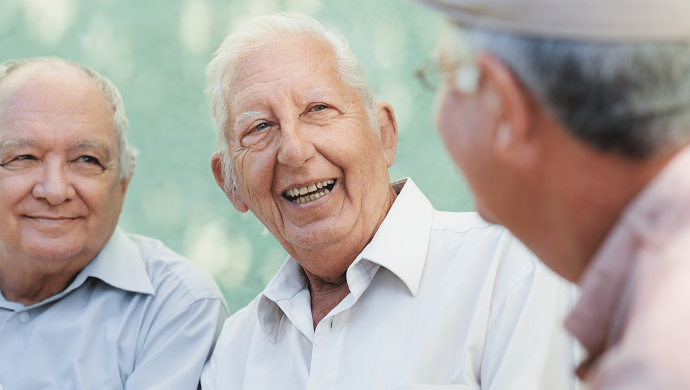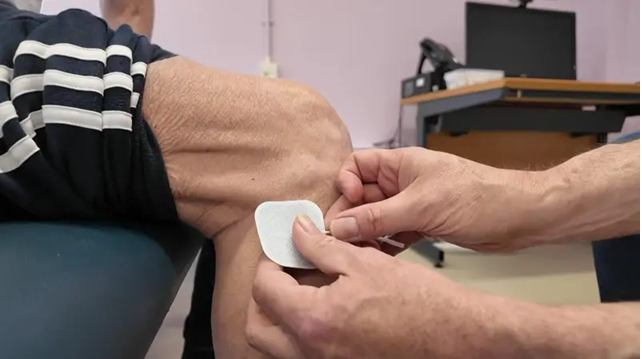Men and Parkinson’s Disease
Men are twice as likely as women to have Parkinson’s disease.
Ongoing research shows that probable reasons for this difference include toxicant exposure, head trauma, mitochondrial dysfunction, or genetic risk factors.
In fact the sexes even experience Parkinson’s symptoms differently.
Male Parkinson’s patients show greater deficits in attention and working memory than female patients. They are also more prone to severe drooling and impulse control disorders such as pathological gambling and hypersexuality.
Biological sex also differently impacts emotion processing. For example, men show worse recognition of the emotion anger accompanied by reduced neural response.
Physically, men are also more prone to the severe forward bending of the trunk that occurs while standing or walking.
That’s a diverse list of symptoms which illustrates that Parkinson’s is a highly complex disease. It has more than 50 non-motor symptoms which manifest in different combinations and at different times in each individual.
Parkinson’s is a life-long disease that is difficult to diagnose and there is as yet no cure. However we do know a lot about useful treatments which will help to maintain quality of life for as long as possible.
Medication for Parkinson’s
Most people with Parkinson’s disease eventually need a medication called levodopa. Levodopa is absorbed by the nerve cells in your brain and turned into the chemical dopamine, which is used to transmit messages between the parts of the brain and nerves that control movement.
Parkinson’s is a movement disorder so topping up dopamine in your brain will help to treat stiffness and tremor as Parkinson’s progresses.
Value of exercise
Vigorous exercise is second only to medication in effectiveness for slowing the progression of Parkinson’s.
Research has shown that exercise can improve gait, balance, tremor, flexibility, grip strength and motor coordination.
Non-contact boxing and dancing are particularly helpful because they combine multiple rhythmic movements which require coordination as well as building muscular strength.
Other popular exercises include yoga, Tai Chi, treadmill training, Nordic walking (using poles to engage arms as well as legs), high intensity interval training and biking.
Parkinson’s also affects the vocal cords, causing degeneration in speech quality and projection. Therefore singing is a useful exercise as well – and there is a side benefit of social engagement if you join a choir.
What services will I require?
- Your neurologist will diagnose Parkinson’s then put you on a course of medication. They will then monitor your progress and recommend changes in treatment as medicines wear off and other options become available.
- Your GP will also monitor your medication regime and offer ongoing advice on managing side effects and other symptoms such as difficulty sleeping, constipation, etc. They can also refer you to Allied Health providers who will assist you to proactively manage your condition.
- Allied Health services useful for people living with Parkinson’s include physiotherapists, exercise physiologists, speech therapists, occupational therapists, and psychological counsellors (who will help you manage issues such as apathy, depression, and grief)
Where do I start? How do I make sense of my diagnosis?
Call 1800 644 189. This is the Parkinson’s NSW InfoLine.
This is a specialist service (not a generic call centre) staffed by two Parkinson’s Registered Nurses with 70 years of experience between them.
The InfoLine can:
- Talk you through the initial shock of diagnosis and advise on first steps to take
- Listen to your concerns and recommend practical changes you can make and/or services which can help – including Specialist Movement Disorder Neurologists.
- Connect you with Allied Health and Parkinson’s NSW services including:
- Community-based Parkinson’s Specialist Nurses – many in regional and rural areas
- Parkinson’s Support Groups for social opportunities and non-judgemental peer support
- Counselling
- Verified providers of Allied Health Services
- Parkinson’s Clinics
- National Disability Insurance Scheme Advocacy
- National Disability Insurance Scheme Support Coordination
1800 644 189
Parkinson’s NSW InfoLine
Related article
Men and Parkinson’s






